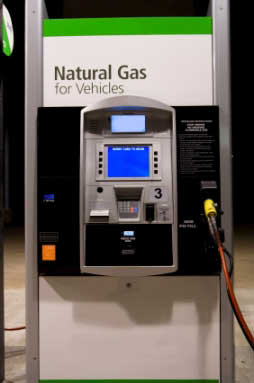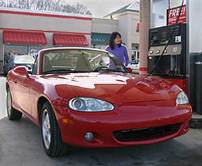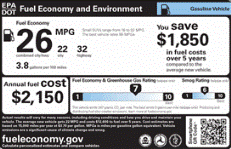Natural Gas

Natural gas, a fossil fuel comprised mostly of methane, is one of the cleanest burning alternative fuels. It can be used in the form of compressed natural gas (CNG) or liquefied natural gas (LNG) to fuel cars and trucks.
Dedicated natural gas vehicles are designed to run on natural gas only, while dual-fuel or bi-fuel vehicles can also run on gasoline or diesel. Dual-fuel vehicles allow users to take advantage of the wide-spread availability of gasoline or diesel but use a cleaner, more economical alternative when natural gas is available. Since natural gas is stored in high-pressure fuel tanks, dual-fuel vehicles require two separate fueling systems, which take up passenger/cargo space.
Natural gas vehicles are not available on a large scale in the U.S.—only a few models are currently offered for sale. However, conventional gasoline and diesel vehicles can be retrofitted for CNG.
| Advantages | Disadvantages |
|---|---|
|
|
Additional Information
Fuel Economy Information for Bi-fuel and Natural Gas (CNG) Vehicles - Find a Car
Alternative Fuels and Advanced Vehicles Data Center
Honda Civic GX CNG - Honda









